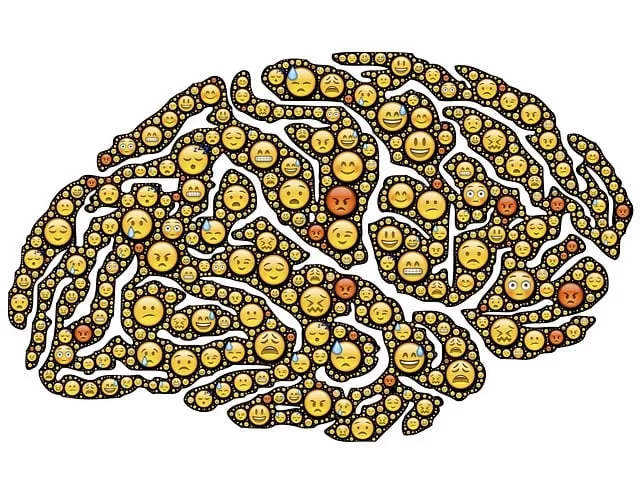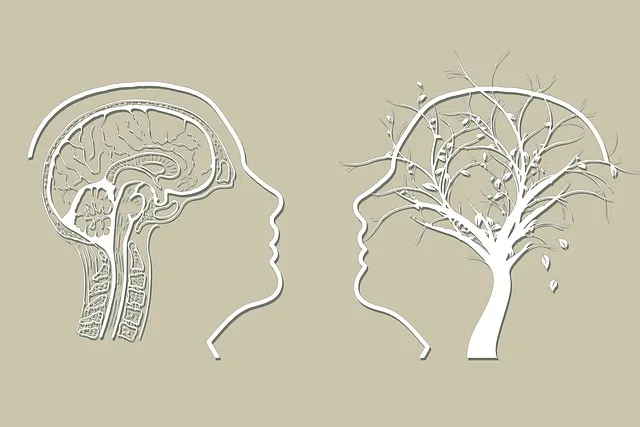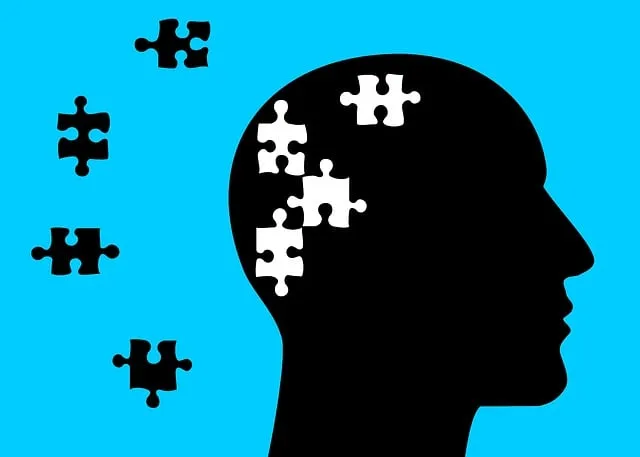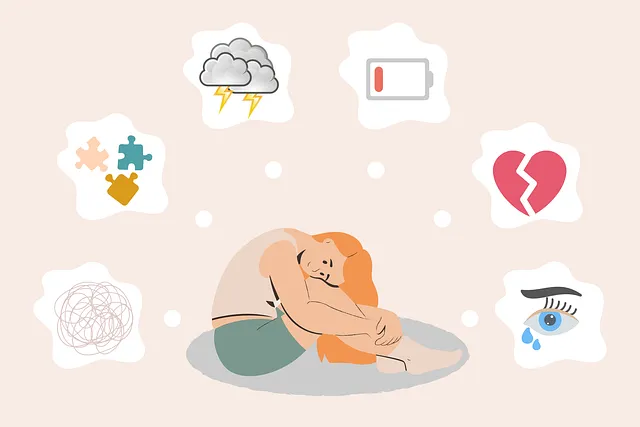The stigma around mental illness acts as a significant barrier to care, deterring individuals from seeking treatment, including at facilities like Kaiser's inpatient mental health services in Wheat Ridge. Reducing this stigma is crucial through empathy-fostering communication strategies and education campaigns that dispel myths. Kaiser Wheat Ridge employs holistic approaches, such as Mind Over Matter principles and Stress Management Workshops, empowering patients with tools for emotional well-being. Media storytelling and celebrity advocacy also normalize conversations about mental health, encouraging support seeking without embarrassment. Global initiatives, including those by organizations like Kaiser, collaborate to raise awareness, educate communities, and destigmatize therapy through strategies like mindfulness meditation.
Mental illness stigma remains a significant barrier to accessing quality mental healthcare. This article explores comprehensive strategies to reduce this pervasive issue, from understanding its profound impact on help-seekers to examining initiatives like Kaiser’s inpatient mental health services at their Wheat Ridge facility. We delve into educational approaches, media advocacy, and global collaborations, providing insights into breaking down stigma and fostering supportive communities worldwide.
- Understanding Stigma: Its Impact on Mental Health Care Seekers
- Kaiser's Inpatient Mental Health Services: A Closer Look at Wheat Ridge Facility
- Strategies to Reduce Stigma: Educating Communities and Challenging Perceptions
- The Role of Media and Celebrity Advocacy in Breaking Down Barriers
- Global Initiatives: A Collaborative Approach to Fighting Mental Illness Stigma
Understanding Stigma: Its Impact on Mental Health Care Seekers

Stigma surrounding mental illness can act as a significant barrier for individuals seeking help, often leading them to delay or avoid accessing critical care. This societal stigma results in numerous consequences for those struggling with their mental health. Many people experiencing symptoms of mental illness feel ashamed, fear judgment, and anticipate negative reactions from others when they open up about their struggles. Such feelings can deter them from pursuing treatment options, including seeking help at facilities like the inpatient mental health services provided by Kaiser in Wheat Ridge.
Understanding the impact of stigma is crucial to developing effective strategies for reduction. It often manifests in various ways: from subtle discrimination to overt rejection. This internalized shame and fear can negatively affect an individual’s self-esteem improvement, hindering their ability to communicate openly about their experiences. By fostering empathy building strategies and implementing communication strategies that promote understanding, communities can create a supportive environment. Such initiatives encourage open conversations about mental health, thereby reducing the stigma and enabling more individuals to seek the care they deserve, including inpatient treatment options available at Kaiser Wheat Ridge.
Kaiser's Inpatient Mental Health Services: A Closer Look at Wheat Ridge Facility

Kaiser’s Wheat Ridge facility offers a comprehensive look at their inpatient mental health services, which have been designed to provide specialized care for a wide range of conditions. This location prioritizes an individualized approach, integrating evidence-based practices and Mind Over Matter Principles to promote healing and recovery. Patients here benefit from a multi-disciplinary team that includes psychiatrists, psychologists, social workers, and nurses who work together to address not just symptoms but also underlying emotional healing processes.
The facility’s focus extends beyond traditional treatment methods by offering Stress Management Workshops Organization sessions, aiming to equip individuals with tools for managing stress and improving overall mental well-being. These initiatives reflect a commitment to not only treating mental illness but also fostering resilience and empowering patients to maintain stable, fulfilling lives.
Strategies to Reduce Stigma: Educating Communities and Challenging Perceptions

Reducing stigma surrounding mental illness is an essential step towards creating a more accepting and supportive society. One powerful strategy involves educating communities about mental health, breaking down misconceptions, and challenging outdated perceptions. This process begins with raising awareness through various channels like schools, workplaces, and community centers. Providing accessible resources and information sessions can help dispel myths and foster empathy.
At Kaiser’s inpatient mental health facility in Wheat Ridge, for instance, initiatives aimed at stigma reduction focus on promoting Mind Over Matter principles. These programs encourage emotional regulation techniques and Compassion Cultivation Practices, empowering individuals to manage their mental well-being and challenge societal norms. By fostering open conversations and sharing personal stories, communities can humanize mental illness, reduce fear, and cultivate an environment where support is sought without embarrassment.
The Role of Media and Celebrity Advocacy in Breaking Down Barriers

The media plays a significant role in shaping public perception about mental health, and its influence can be powerful when it comes to reducing stigma. By featuring stories of recovery, raising awareness about various mental health conditions, and showcasing successful individuals living with these issues, media platforms can help normalize conversations around mental illness. Celebrity advocacy further amplifies this impact; when well-known figures openly share their struggles and victories, they inspire others to seek support and challenge societal norms. This strategy has proven effective in encouraging open dialogue about mental wellness.
For instance, discussions around Kaiser’s inpatient mental health services in Wheat Ridge benefit from such public discourse. By integrating these conversations into broader narratives of recovery and resilience, the focus shifts from stigma to support. This approach not only encourages people to understand their own experiences better but also promotes a culture where seeking help is seen as a sign of strength, mirroring the principles of Inner Strength Development and Burnout Prevention Strategies crucial for healthcare providers’ well-being, especially in risk management planning for mental health professionals.
Global Initiatives: A Collaborative Approach to Fighting Mental Illness Stigma

Global initiatives play a pivotal role in combatting the stigma surrounding mental illness. Organizations like Kaiser, with its inpatient mental health services in Wheat Ridge, are at the forefront of this collaborative effort. By joining forces, healthcare providers, researchers, and advocates worldwide share resources, best practices, and innovative solutions to challenge societal norms and promote understanding. These initiatives focus on raising awareness, educating communities, and providing support networks that foster empathy and reduce judgment.
One such strategy gaining traction is the integration of mindfulness meditation into mental health care plans. This ancient practice empowers individuals to take charge of their emotional regulation, a key aspect in burnout prevention for healthcare providers. Additionally, by emphasizing holistic approaches like Mindfulness Meditation, these global efforts aim to destigmatize various forms of therapy and encourage those in need to seek help without fear of rejection or prejudice.
Mental illness stigma reduction is a global effort that requires community engagement, education, and collaborative initiatives. By challenging perceptions and breaking down barriers, we can create an environment where individuals feel comfortable seeking mental health care without fear of judgment. As evidenced by Kaiser’s inpatient mental health services at Wheat Ridge, providing accessible and supportive treatment options plays a crucial role in fighting stigma. The media and celebrity advocacy further enhance these efforts by raising awareness and normalizing conversations around mental health. Together, these strategies can lead to significant progress in reducing the impact of stigma on mental health care seekers worldwide.






